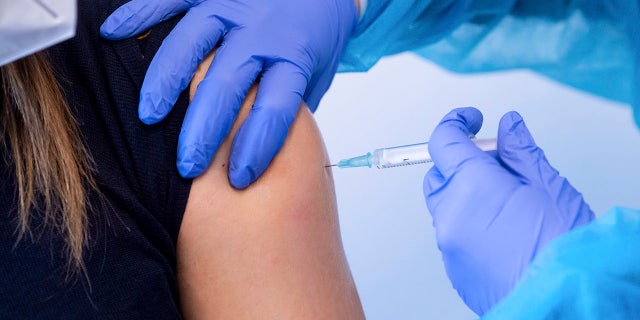AstraZeneca may have included outdated information from COVID-19 trial, NIAID says
AstraZeneca US chief lauds new vaccine, dismisses blood clot concerns
AZ US President Ruud Dobber tells 'Your World' studies showed no significant clotting side effects
AstraZeneca may have provided an incomplete view of the efficacy data related to its COVID-19 vaccine clinical trial, according to the National Institute of Allergy and Infectious Diseases (NIAID) on Tuesday.
The British pharmaceutical company said in a statement early Monday that the Phase III trial of its COVID-19 vaccine -- which was conducted in the U.S. -- showed a 79% effectiveness in preventing symptomatic infections and a 100% efficacy "at preventing severe disease and hospitalization."
Later on Monday, the Data and Safety Monitoring Board [DSMB] notified AstraZeneca, NIAID and the Biomedical Advanced Research and Development Authority [BARDA] that it was concerned about information released by the company on initial data from its COVID-19 vaccine clinical trial, the NIAID wrote in a statement.

A police officer receives an injection with AstraZeneca's COVID-19 vaccine in Munich, Germany on March 2, 2021. (Sven Hoppe/dpa via AP, File)
"The DSMB expressed concern that AstraZeneca may have included outdated information from that trial, which may have provided an incomplete view of the efficacy data," according to the statement. "We urge the company to work with the DSMB to review the efficacy data and ensure the most accurate, up-to-date efficacy data be made public as quickly as possible."
AstraZeneca did not immediately respond to a late-night request for comment from Fox News.
The request to review efficacy data comes as the company plans to seek U.S. Emergency Use Authorization for the vaccine in the coming weeks.
Authorization and guidelines for use of the vaccine in the U.S. will be determined by the Food and Drug Administration [FDA] and Centers for Disease Control and Prevention [CDC] after a "thorough review of the data by independent advisory committees," according to the statement.
Thanks again
This week, AstraZeneca U.S. President Ruud Dobber said the company will be able to provide 30 million doses for Americans once the vaccine is cleared for Emergency Use Authorization.
Dobber recently sought to assure the American public that the company’s COVID-19 vaccine was safe, despite concerns about links to potential blood clots raised in Europe.






.jpeg)
Comments
Post a Comment